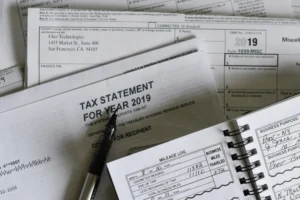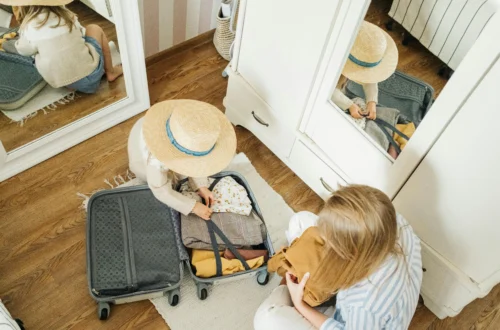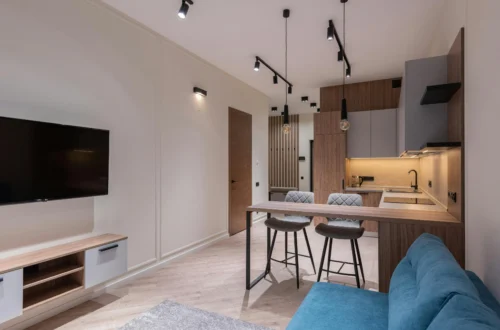1. VAT
One of the most common questions among property owners is whether they need to declare VAT for the expenses and income generated by their apartment. According to the VAT law (LIVA), tourist accommodations are exempt from VAT if the landlord does not provide hotel-like services. Let’s look at these services in detail:

Services for which VAT must be declared
In general, VAT must be declared for tourist accommodations that provide any of the following complementary services typical of the hotel industry. These services are characteristic of hospitality activities. They include the following:
- Reception and ongoing attention to the tenant
- Periodic cleaning of the accommodation
- Regular change of bed linen and towels
- Luggage storage
- Laundry service
- Newspapers
- Reservations
- Food or restaurant services
If this applies to you and you provide any of these services, you will not be exempt from declaring VAT and, therefore, you must pay VAT at the reduced rate of 10%, just like a hotel establishment.
Services for which VAT does not need to be declared
On the other hand, if your tourist rental does not provide any of the services mentioned in the previous section, but does offer any of the services listed below, you will be exempt from declaring VAT to the Tax Agency.
- Cleaning service of the apartment at the beginning and end of the agreed period with the guest(s).
- Linen change service at the beginning and end of the agreed period with the guest(s).
- Cleaning service of the common areas of the building (stairs, entrance, elevator) as well as the building’s urbanisation (green areas, entrance gate, sidewalk, and surrounding streets).
- Occasional technical assistance and maintenance service. For example, fixing a plumbing or electrical issue, etc.
However, by not declaring VAT, you will also not be able to deduct the VAT paid on the expenses incurred. Nevertheless, you will need to pay the corresponding Property Transfer Tax (ITP) for each autonomous community.
2. Personal Income Tax (IRPF)

As with VAT declaration, the IRPF taxation also depends, once again, on the services you offer as an owner. Therefore, if you provide any hotel-like services, your IRPF declaration will show it as business income. On the other hand, if you do not offer any hospitality services, the Tax Agency will consider it as real estate income.
Generally, most tourist apartments are considered real estate income. Therefore, in these cases, if you are the owner of the tourist apartment, you, as the property owner, must declare the difference between the gross income and the deductible expenses of your vacation rental to the Tax Agency in the IRPF declaration.
Here is an example of some expenses related to the activity that you can deduct:
- Community fees
- Property Tax (IBI)
- Utilities (water, electricity, gas, internet)
- Maintenance and repairs
- Mortgage interest
- Furniture and appliances
- Platform commissions (Airbnb, Booking, etc.)
- Cleaning services
- Advertising and decoration
- Depreciation of the property (3% annually) and of the furniture (up to 10%)
However, the 60% reduction established in the Personal Income Tax Law (IRPF) does not apply to the net result of the declaration, as tourist-use apartments do not meet a permanent housing need, but rather a temporary one.
According to a recent instruction from the Spanish Tax Agency (Hacienda), periods during which the property was not rented but was available for rent are also considered real estate capital income (rather than deemed income), provided you can prove that the property was listed on rental platforms. Otherwise, it is still considered deemed income.
Practical Tips
To manage your rental efficiently and optimise your income tax declaration (IRPF), it is recommended to:
- Use an Excel spreadsheet to track income and expenses
- Keep all invoices and receipts
- Run tax simulations before submitting your return
- Do an annual fiscal closing to ensure nothing is left out
- Consult a specialised tax advisor
3. Business Tax (IAE)
The Business Tax (IAE) is a tax that is part of the Spanish tax system and is managed by local councils. This tax is levied directly on the performance of any type of business activity, whether by individuals or legal entities.
IAE in Tourist Rental Apartments
- With Hospitality Services
If your rental offers any of the services for which VAT must be charged, your business activity is classified as “Non-hotel tourist accommodation” in group 685 within Group 68 of the IAE Tariffs.
- Without Hospitality Services
If you do not offer any hotel-like services, this business activity is registered as “Residential Rentals.” However, if the result of this activity is less than €601.01, you will be exempt from paying IAE, and you will only need to declare the rental income as part of your annual income.
- IAE with a Management Agency
If you lease your apartment to a third-party company to manage and operate it as a tourist accommodation, then your rental activity is classified under the IAE as “rental of industrial premises and other rentals not covered elsewhere.”
4. Information Obligations: Form 179
Since 2018, it has been mandatory to report information about your tourist accommodation. As part of this obligation, Form 179 must be submitted by digital platforms to the Spanish Tax Agency (Hacienda).
The information that must be included in this document is as follows:
- Property owner
- Holder of the right under which the property is leased (if different from the property owner)
- Identification of the persons or entities making the property available
- Identification of the property and cadastral reference
- Number of days the property has been used for tourist purposes
- Amount received by the leasing right holder for the use of the property
- Contract number assigned by the intermediary
- Start date of the lease
- Intermediation date
- Identification of the payment method used
6. Why Seek Advice from an Expert Apartment Rental Agency
If you are a property owner and are interested in renting it out, we recommend that you seek the support of a company specialising in the sector, so they can assist you with the management of the property and advise you on the taxation of your apartment. At AB Apartment Barcelona, we specialise in short- and medium-term rental management. Contact us to learn more!

If you found this helpful, let us know by leaving a comment. And if you have any further questions or would like more detailed and personalised advice, don’t hesitate to contact us at AB Apartment Barcelona — we’ll be happy to help!








